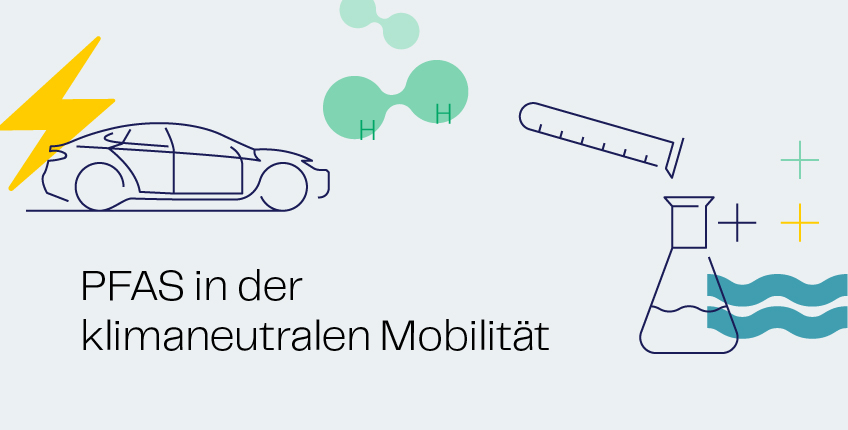What impact would a broad restriction of use of the chemical group have on the powertrain transition? NOW factsheet provides a clear and concise overview.
The abbreviation PFAS stands for per- and polyfluoroalkyl substances, a group of more than 10,000 chemicals with a fluorine-based chemical composition. These powerful chemicals were first produced in the middle of the 20th century and are used in numerous industrial processes and technical applications, in consumer goods, medical products, packaging, buildings and vehicles.
Due to their high stability, any PFAS that are released remain in the environment. For some PFAS, harmful effects on humans, animals and plants have already been proven. The EU is therefore examining a very far-reaching restriction on the use of the entire group of substances. In such as case, the production and use of PFAS in manufacturing processes or trade in all products containing PFAS would then hardly be possible.
Such a ban would have far-reaching consequences for the further development of climate-neutral mobility. The NOW factsheet (currently available in German language only), provides information on where and which PFAS are used in batteries, fuel cells and electrolysis and whether PFAS are released into the environment in these applications. It shows the status of the development of PFAS-free alternatives and provides the most important links for all those who want to find out more about the topic and follow the latest developments.
Download it now (PDF, in German)!
About NOW GmbH:
NOW GmbH has been supporting the federal government since 2008 in its climate and industrial policy goals. Among the tasks of the federally-owned company is to develop, support and evaluate funding programmes for climate-neutral mobility and energy supply. The NOW GmbH experts supervise projects in hydrogen fuel cells, batteries and renewable fuels; they reimagine mobility and fuels for cars, buses, trains, commercial vehicles, ships and airplanes – and support the establishment and further development of charging infrastructure as well as hydrogen refuelling stations for cars and trucks. More information on NOW can be found here.


